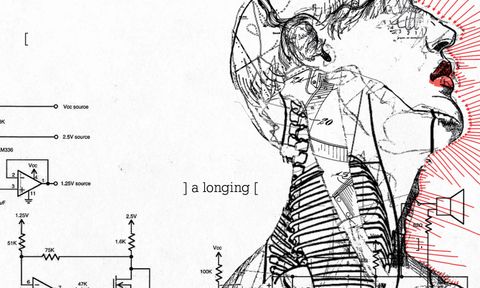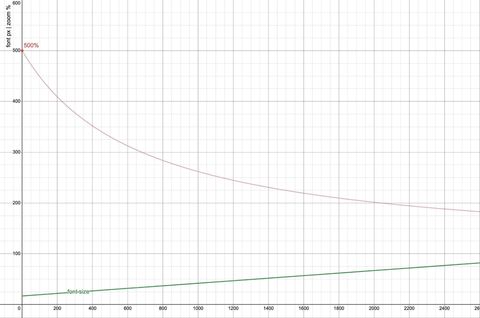Every Christmas, my dad’s family rents a lodge
with space for 30-some people to play board-games (and occasionally sleep).
We crowd in for three days, living on top of each other.
I love these people, but I live alone for a reason,
and the chaos is overwhelming.
I find a corner with my partner, and work on jigsaw puzzles –
talking to aunts and uncles and cousins one-by-one
as they visit my makeshift office between rounds of
Mahjong or Pandemic or Clue.
People still play Clue?
At some point, the entire group gathers for a round of sharing –
updates about our past year, from youngest to oldest.
I’ve been meaning to write this article for a few weeks now. I keep putting it off. How do I write about something I can’t really articulate? I don’t have answers, only frustrations.
Grandpa has two PhD’s, and presided over several colleges before retiring to write a book or two. He has parkinsons now, but still works whenever he can. Grandma is active in every community organization you can imagine, and will never retire. My aunts and uncles are mostly professors, doctors, engineers, and university administrators – each admired in their field, writing books and speaking at conferences.
My family is productive. Going around the circle, each minute of sharing is more impressive than the last, until someone finally breaks the pattern. She’s been struggling with depression, and apologizes for not being as impressive as the rest.
I’m crushed. My life isn’t the raging success that I shared three minutes earlier. I’m struggling too. I’m sad, and insecure, and I feel like an imposter. I also have friends who keep me going – people I love, and people who love me. There is so much to share beyond my resume. This is family, why am I treating it like an interview?
My stomach is upset today, and everything feels difficult. I stop to write some code, but it’s a frustrating mess. I’d rather go on a walk or play Zelda. This article isn’t coming together like I wanted – but if I stop now, I’ll be distracted all afternoon. I need to finish so I can clear my mind. I hope.
I’ve read the productivity books and blogs. Self-help can be an addictive distraction. When I feel like an imposter, I hope the experts will give me insight to take over the world, or feel useful again. And sometimes the tips help: break a problem down into small steps, and work in short sprints until you find momentum. That’s good advice for anything. We can all learn to be more agile in our lives – but that’s not the same as learning the rules of Scrum.
My uncle played rugby. So did my old roommate. I’m pretty sure that’s not relevant to this article.
I’ve used a mix of philosophies over time, from Getting Things Done to Pomodoro, depending on the work in front of me. My job requires me to be productive, and I try. It’s useful to know your way around a road-block. I apply these techniques to my art, and find writer’s block more manageable. But when does productivity cross from being a tool to an obsession?
I’m skeptical about the whole self-help industry. I’m skeptical about productivity. I don’t actually recommend getting things done, so why recommend GTD? I don’t believe in a strong work-ethic, or career success, or getting ahead – but I try to do them all. Why do I fall for it over and over? Why do I take on so many projects? Who am I trying to impress?
To be more productive, I’ve heard that you should wear the same clothes every day, and get up at 4am. That sounds like a shitty life. I’m not interested.
I see other people’s accomplishments on-line and wonder if I’ll stack up. I should be working harder. I should be more productive. I wonder if they feel the same. I wonder if we’re fueling each other in a constant struggle to be relevant. I don’t want to play that game. But look at Rachel Andrews and Jen Simmons, with their amazing work on the future of web layout, while I maintain a dying grid system. Sarah Drasner is talking every weekend, and building animations to die for. Abby Covert wrote this exact same article a week before me!
Maybe I should work harder. Maybe a new version of Susy will convince the world that I’m still relevant. Maybe another novel will break me into a best-seller list, and I’ll retire on a boat at the age of 35. Maybe I’ll be a literal rock star. Maybe I’ll gain a million followers on Twitter, and clients will break down our doors. Maybe I should get back to work.
I agreed to write this article because look at the company! What a list! What a lineup! These people inspire me every day! I know a few of them in person, and they’re wonderful! What an honor! Bang bang bang! Interobang?!
I read somewhere that “what gets measured gets done” and I’ve seen that play out. The ways we define success change the ways we work. Apps like Facebook and Instagram often measure click-interactions, and optimize for more clicking. “We’re just giving people what they want, according to the data,” I’m told. But who decided that quantitative click-tracking is an accurate measure of my desires? When did socializing become measurable through likes? How do we measure something new?
I remember a mentor telling me to set directions instead of goals. If you reach your goals, you have no idea what’s next – but you can follow a direction as long as you want. I wonder if this is the same as focussing on the journey instead of a destination. Same cliche, different flavor?
When I have to finish a project on deadline, a good system can make all the difference – but where are we going with this? Productivity has become a belief-system that eats itself, without care for the world outside. I care about the world outside. At best, productivity is a way to get where we’re going. I hope I’m going somewhere interesting.
My partner just linked me to an app called Minutia – an “anti-social” app that facilitates anonymous photo-sharing around the world. No likes, or comments, or profiles involved. It’s beautiful, and there is nothing to click.
The best productivity tip is entirely unfair: do something else. Take a walk, play a game, watch TV. Fill your mind with otherwise-worthless junk. You can’t build new ideas without new material to work from. The best way to be productive is to have free time, and leftover energy to travel, daydream, and explore.
That’s not advice, that’s privilege. Like saying do what you love – only the wealthiest and healthiest can act on it. Everyone else needs a paycheck.
When life is easy, I can write open-source software all day long. But when I’m struggling personally or financially, my production goes to shit. I’m lucky to have a job with some flexibility, teammates who will cover when I fail, and a family who will let me do a puzzle in the corner when I’m overwhelmed.
Want to be like Steve Jobs? Try exploiting cheap international labor!
The next time I share about my year, I hope to let go of my productive ego, and share what life is really like. It’s been a hard year, and a good one. I’ve made new friends, and enjoyed collaborating with some amazing people. I’ve struggled to feel productive, and also to take time and enjoy myself. When I focus on productivity, I only make things worse.
We need to find a better metric.



